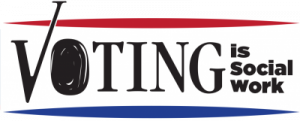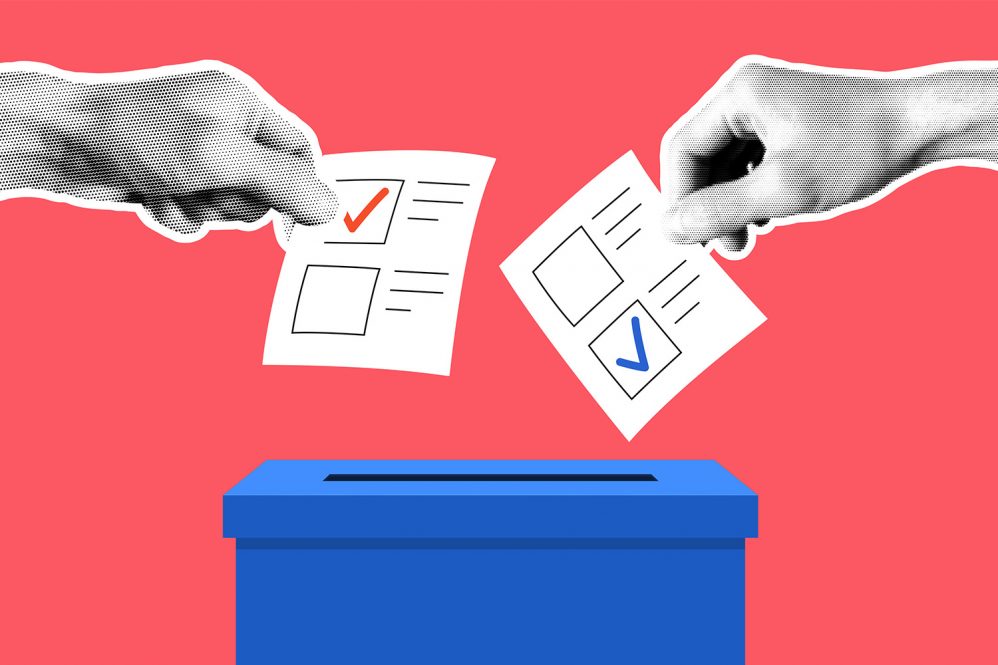When people and communities become disenfranchised, they have no say in the policies that govern their lives.
The policies that impact whether or not their local school systems will be effective.
The decisions that make affordable housing achievable or untenable.
The choices about where concentrating economic development might help a neighborhood and create good-paying jobs – or where it won’t.
For James Jeter, the co-founder and director of the Full Citizens Coalition – a Connecticut-based action group focused on undoing the injustices and harms caused by felony disenfranchisement – a big part of breaking the cycle of disenfranchisement is civic education and political advocacy.
“If those who are convicted of felonies have their right to vote, then they have a direct say in what’s governing their town,” Jeter says. “They become more active and conscious of town governance. And they’re able to speak directly to something working, which has the ability to completely change the narrative in their communities about what is possible on a local level.”
It’s both a moral and a personal mission for Jeter, who was incarcerated for nearly 20 years. He came home in 2017, started the coalition in 2018, and has been working on uplifting individuals and communities and enacting legal reforms in Connecticut ever since.
 But the issue of felony disenfranchisement isn’t just a Connecticut problem. The United States has a long history, especially in African American communities, Jeter explains, of restricting ballot access and using the criminal justice system to reduce the political power of communities of color.
But the issue of felony disenfranchisement isn’t just a Connecticut problem. The United States has a long history, especially in African American communities, Jeter explains, of restricting ballot access and using the criminal justice system to reduce the political power of communities of color.
And it’s worked. Removing the right to vote has a generational impact on communities most affected by incarceration.
“That cycle has to break somewhere, and for us, what we see is that it’s really hard to engage communities – to engage them on something that they’ve never experienced,” Jeter says. “We want to use the same tool that was used to disengage us to reengage us.”
That tool is voting. And helping disenfranchised voters reengage with the electoral process through understanding and exercising their right to vote on all levels – local, state, and federal – is a goal that Tanya Rhodes Smith, director of the Nancy A. Humphreys Institute for Political Social Work at the UConn School of Social Work, wholeheartedly shares.
“Voting is complicated, and it’s intimidating, especially for vulnerable populations, like the unhoused, the formerly incarcerated, or those living in congregate care,” says Rhodes Smith. “We know that being a non-voter is a very isolating space, because voting is highly relational. Campaigns generally ignore non-voters— you don’t get campaign materials, or someone knocking on your door. Information on candidates in state and local elections in communities with low turnout can be very hard to find or even nonexistent.”
That’s where social workers, explains Rhodes Smith, can play an important role in helping disenfranchised voters understand their rights – and register to vote.
Money, Power, and Resources
As co-founders since 2015, UConn’s Humphreys Institute has been the institutional home for Voting Is Social Work.
Also known as the National Social Work Voter Mobilization Campaign, Voting Is Social Work supports nonpartisan voter engagement as central to social work’s mission, ethical mandate, and impact.
“We’ve always believed that social work has the power to transform democracy,” says Rhodes Smith, “and we believe every social worker – and social service agency – should include nonpartisan voter engagement into their practice and work. Because we reach non-voters – those who are least likely to vote.”
Social work was founded as a political profession, she explains, and has always been committed to not only working with individuals, but also working to solve the complex issues and barriers within the communities they serve.
“When you think about social determinants of health – the environmental and socio-economic conditions in which people live, work, and play that have a powerful impact on our health and outcomes – these are shaped by money, power, and resources,” Rhodes Smith says. “And money, power, and resources are shaped by public policy and elected officials.”
And who better to help people understand how to engage with those processes than the people who are already working within impacted communities?
“From the standpoint of clients, guardians, people who are in foster care, overseeing foster care – the people who don’t have a say, or don’t believe they have a say, in the structures of policies that govern their lives – sometimes the closest person to you helping you navigate whatever hurdles have been presented in your life at the time are social workers,” says Jeter.
“Having an understanding of the need and the ability to reach community, I think it impacts and benefits the community, especially when you’re training a generation of social workers to be conscious in this manner,” he continues.
And training social workers is exactly what Voting Is Social Work does.
De Facto Disenfranchisement
Voting Is Social Work is active in all 50 states, says Rhodes Smith, and provides training and resources for students, faculty, schools, organizations, and individual social workers.
Through a recently relaunched and robust website, the campaign provides easily accessible information so that social workers and others can first educate themselves and then work to give that knowledge to the clients and communities they serve.
One of the challenges, Rhodes Smith explains, is that voter registration regulations and Election Day procedures vary widely from state to state. For individuals with special circumstances, complex rules can cause even more confusion.
In the case of felony disenfranchisement, for example, many formerly incarcerated people who believe that they are not eligible to vote actually can cast ballots.
“There are 20 million people in our country with a felony record, and more than 4 million of them have lost the right to vote, currently,” says Rhodes Smith. “But there is this de facto disenfranchisement, because people don’t know the rules. They just assume that they can’t vote.
“So, if social workers don’t know the rules, they can inadvertently suppress the political power of the people that they’re serving. And that goes for those who are in congregate care – that goes for all of the groups that are most vulnerable and most likely to not understand the complicated set of rules that are made state by state,” she says.
In fact, an entire set of educational materials available through Voting Is Social Work is focused particularly on those individuals with special circumstances, who are more vulnerable to disenfranchisement due to their personal circumstances – including voters with disabilities, individuals who do not speak English, Americans residing outside of the U.S., including Uniformed Service members; survivors of domestic violence; and the unhoused.
“Many people assume that if you don’t have a home, you can’t vote,” says Rhodes Smith. “We are big proponents of saying that anyone can register to vote. You don’t need a home. You don’t even need a shelter. You can register at a park bench.
“So, we get that word out because, again – social workers are in these spaces.”
All Year Long
Over the last nine years, the reach of Voting Is Social Work has only broadened.
The campaign has been endorsed by more than 20 national professional organizations, including the National Association of Social Workers; the Council on Social Work Education, which is the accrediting body of social work education; and the Clinical Social Work Organization.
The campaign has trained thousands of students, faculty, and organizations on incorporating nonpartisan voter engagement into social work practice, according to Rhodes Smith.
And the importance of the effort has only increased over the last decade – research has linked voting to higher earning and education, better health outcomes, and lower rates of recidivism. Areas of lower voter turnout – often referred to as “voting deserts” – receive less resource investment and have higher rates of arrest and incarceration.
This year, in the midst of a contentious federal election cycle, and with Election Day fast approaching, the efforts to engage voters, to register nonvoters, and to address issues of voter disenfranchisement are highly visible.
But for the organizers of Voting Is Social Work, nonpartisan voter engagement matters regardless of the election cycle, no matter who is on the ballot, and wherever an election is taking place.
“Our goal is, all year long, are we giving people the information they need to participate in every election,” says Rhodes Smith.
“Special elections, local elections, primary elections, general elections – are we connecting them to nonpartisan resources so that they can look up the candidates and they can be informed voters in their community? Are we helping them look up who represents them and build their political capital?”
To learn more about, connect with, or take part in the Voting Is Social Work campaign, visit voting.socialwork.uconn.edu.



